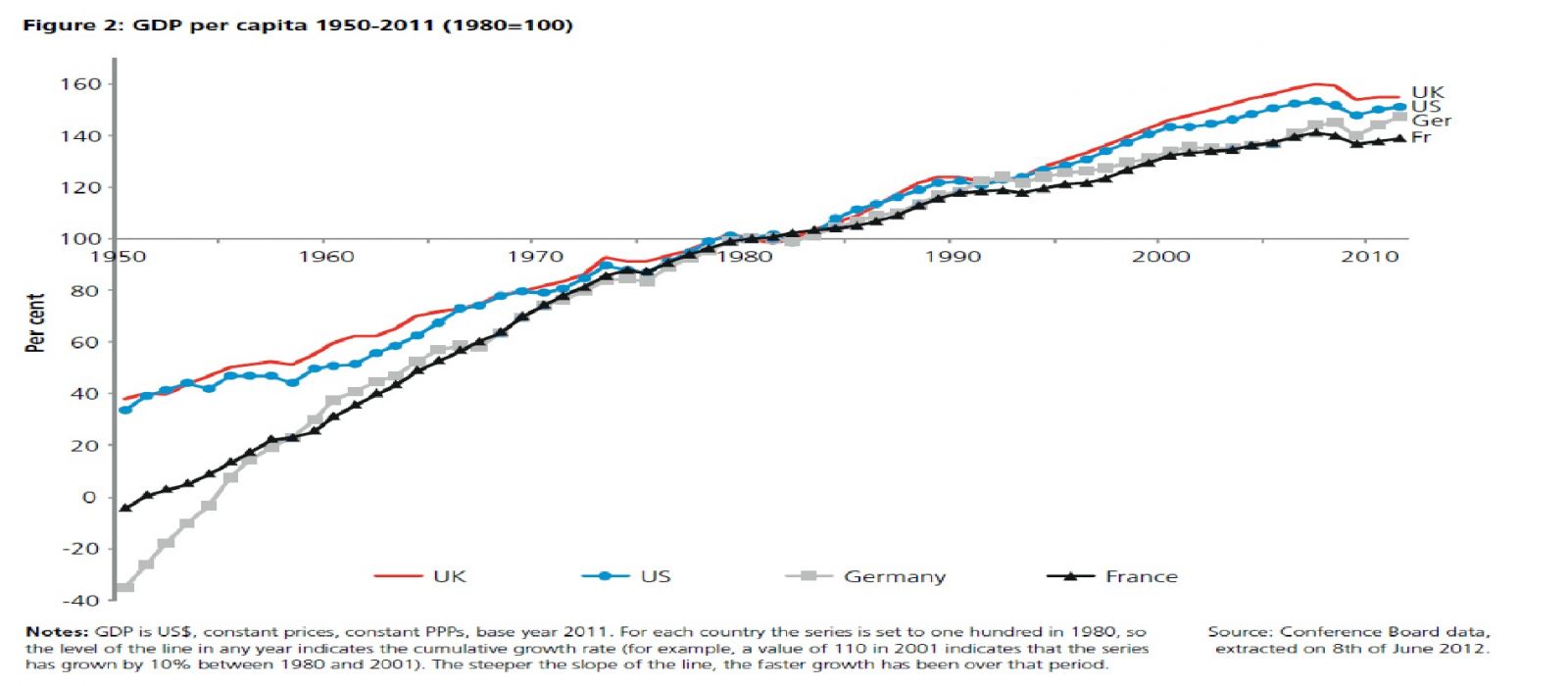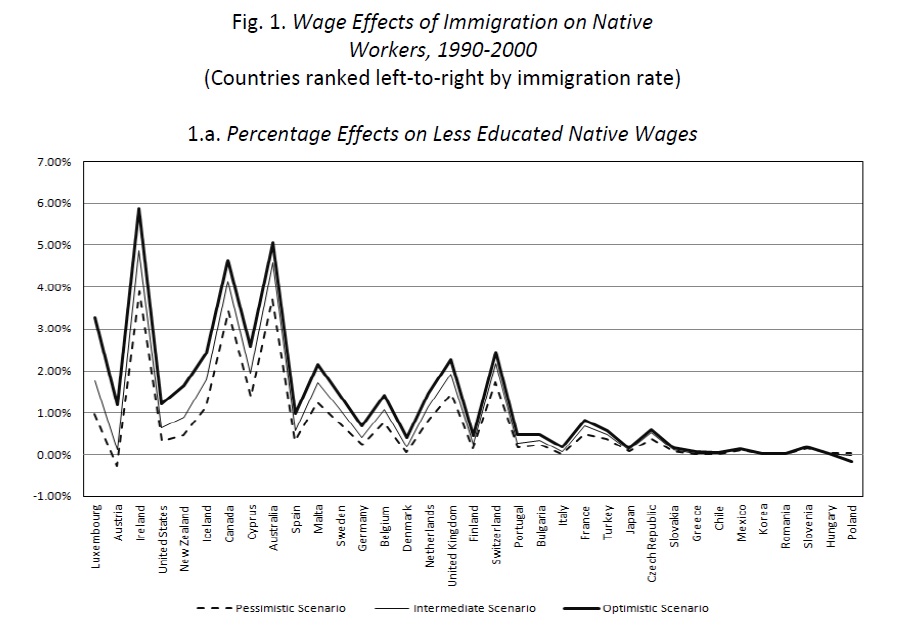Migration and productivity
The normally sensible (even though I don’t always agree with him) Jeremy Warner has a remarkably evidence-free article in the Telegraph, arguing that “mass immigration” is the main driver of “Britain’s dismal long term productivity performance”.

The normally sensible (even though I don’t always agree with him) Jeremy Warner has a remarkably evidence-free article in the Telegraph, arguing that “mass immigration” is the main driver of “Britain’s dismal long term productivity performance”.
The first and most obvious problem with this argument is that Jeremy provides precisely no evidence whatsoever that Britain’s long-term productivity performance is indeed dismal. In fact, the opposite is true. The authoritative LSE Growth Commission (which included, among others, Nobel Laureate Chris Pissarides, NIESR Chair Tim Besley, and Director of the Centre for Economic Performance John Van Reenen) concluded:
The subsequent three decades, in contrast, saw the UK’s relative performance improve substantially so that by the eve of the crisis in 2007, UK GDP per capita had overtaken both France and Germany and reduced significantly the gap with the US. After falling behind for most of the post-war period, the UK had a better performance compared with other leading countries after the 1970s…Productivity growth was also impressive: among the G6 countries, the growth of UK GDP per hour was second only to the US in the decade to 2007.
This chart, which shows GDP per capita, that is after taking account of population growth, makes the point very clearly.
So when Jeremy says:
When the last administration boasted of the umpteenth successive quarter of successive growth, it neglected to say that this was largely the result of population growth
he’s simply flat wrong (and I hope he will correct his error).
Jeremy’s response to this point was to argue that “much of that productivity growth was driven by expansion in finance”. But the Growth Commission flatly reject this argument, and other research shows that productivity growth was in fact principally driven by investment in ICT, a more skilled labour force, and total factor productivity.
So Jeremy is inventing a problem that just wasn’t there, and blaming immigration for it. Of course he’s right that measured productivity performance since the start of the Great Recession in 2008 has been dismal, and there is a vigorous academic debate about the drivers. Some of those he mentions, like the impaired banking sector, undoubtedly do play a part – although my view remains that much, if not all, of the apparent shortfall will vanish if we see a sustained strong recovery.
But in any case, it is obviously absurd to blame immigration. ONS data show, not surprisingly, that migration for work purposes peaked exactly when the recession began, at the end of 2007. In other words, the productivity collapse coincided with falling, not rising, migration – both driven by wider economic forces.
So Jeremy wholly fails to make his case. But, more broadly, what is the impact of migration on productivity? Is it not plausible to argue, as Jeremy does, that greater availability of labour reduces the incentive for companies to invest in labour-saving machinery, or to train native workers to a higher skill level? The short answer is yes – but equally, there are factors that go the other way. As I argue here, immigration is likely to have impacts on productivity and growth over the medium to long term in a number of ways:
· immigrants could bring different skills and aptitudes, and transmit those to non-immigrant colleagues (and vice versa)
· immigration could be complementary to trade in goods and services (because of immigrant networks or for other reasons
· immigrants could increase competition in particular labour markets, increasing the incentive for natives to acquire certain skills
· similarly, immigrant entrepreneurs could increase competition in product markets
· workplace diversity (across a number of dimensions) could increase (or decrease) productivity and innovation
The magnitude of all these impacts is an empirical question. So, what does the evidence – studiously ignored by Jeremy – actually show? There are now a growing body of research on these topics, some described here. A recent empirical paper found that, looking across countries, immigration had a large positive impact on GDP per capita – primarily by raising total factor productivity, in other words completely the reverse to Jeremy’s (non-empirical) speculation.
What about “living standards for low and middle income earners” about which Jeremy is also, rightly, concerned? Well, if immigration does indeed boost productivity across the board, that will in turn increase incomes; another recent paper found that (because of the types of spillovers I describe above) immigration to most rich countries, including the UK, boosted both average wages and the wages of low-skilled workers – the latter by between 1 and 2 percent, as this chart shows:
We should be cautious here: this research is very much in its infancy, and there is very little UK-specific research on immigration and productivity. We at NIESR hope to be publishing some preliminary evidence soon. But simply asserting that immigration is bad for productivity, when the evidence to date suggests that if anything the opposite is the case, is bad economics.
















